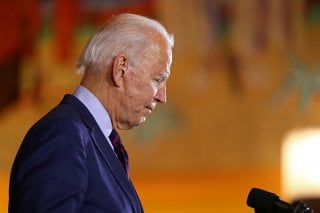Joe Biden Begins the Transition to President – A New Message for a Different Latin America
As the transition finally gets formally underway, there is perhaps no region that requires greater attention from the incoming administration than Latin America. COVID-19 is ravaging regional health systems, throwing back years of economic progress and threatening widescale social calamity. The region’s citizens are frustrated with their governments, and, in just the last week, have taken to the streets in Peru and Guatemala. A stronger partnership with the United States can help to prevent further regional backsliding.
President-elect Biden has announced the core members of his national security and diplomatic team, all of whom will be responsible for reforming America’s global alliances and confronting a world order turned upside down by President Trump’s America-first doctrine. Biden’s top team—nearly all of whom served in key posts in the Obama Administration—will face a landscape that has shifted dramatically over the past four years.
As the transition finally gets formally underway, there is perhaps no region that requires greater attention from the incoming administration than Latin America. COVID-19 is ravaging regional health systems, throwing back years of economic progress and threatening widescale social calamity. The region’s citizens are frustrated with their governments, and, in just the last week, have taken to the streets in Peru and Guatemala. A stronger partnership with the United States can help to prevent further regional backsliding.
The last four years have also led to an increasingly ideologically fragmented Latin America, perhaps illustrated best by the heads of state of Mexico and Brazil declining to formally recognize Biden’s win while President Trump has attempted to throw up dubious and frivolous roadblocks to Biden’s ascension. These cleavages are hindering progress, leaving the region on loose footing with formidable challenges at its doorstep. With Biden in the Oval Office, the United States will have a president, who, more than any of his predecessors, comes to the White House with a deep understanding and appreciation of Latin America and a recognition of how the United States wins with strong ties.
Fortunately for Biden and his team, there will be some momentum to guide them as they take office. The Development Finance Corporation has led a significant effort in recent years to generate a new private-sector development focus in Central America and Colombia. Advancements were also seen in US commercial relations with Mexico and Brazil, perhaps one of the reasons why Brazil’s Jair Bolsonaro and Mexico’s Andrés Manuel López Obrador failed to immediately recognize Biden’s win.
Those positive developments aside, President-elect Biden will inherit a region different from the one he worked so closely with as vice president. A focus on the “troika of tyranny” – a phrase coined by Trump’s third National Security Advisor, John Bolton, in reference to Cuba, Nicaragua and Venezuela – codified the singular focus of the administration. And while restoration of democracy in these three countries will continue to be a priority for the next administration, there is a need to not lose sight of the broader, comprehensive challenges across the region.
Rather than further dividing Latin America, we can expect President-elect Biden to work collaboratively with partners to find common points of consensus in the face of COVID-19. The pandemic cannot be understated. With 8 percent of the world’s population, Latin America and the Caribbean accounts for nearly one-third of global coronavirus cases and deaths. And current projections suggest Latin America is not expected to return to 2019 output levels until 2023, with the most recent IMF projections expecting the economic contraction to surpass the Great Depression’s fallout by over 3 percent.
The need for sustained US partnership in our hemisphere is even more imperative now than four years ago. The president-elect has an historic opportunity to help the region come out of this crisis better positioned for future growth, and, in doing so, to leapfrog long-standing development challenges while also creating jobs in the United States.
Expect a more nuanced approach to issues ranging from restoring democracy in Venezuela to addressing the underlying factors that force Central American migration. With our southern neighbor, the United States-Mexico-Canada trade agreement is an important milestone – advancing new measures to make North America more competitive while implementing new safeguards for labor and environmental rights. But several key unresolved items remain on the table. Top among them is creating more efficient and resilient supply chains in the face of the next economic or health shock as well as cooperation on immigration issues that protects the livelihoods of migrants and refugees.
President-elect Biden brings a renewed US commitment to advancing human rights, to working with regional partners to chart a more climate-friendly future, and to using the power of persuasion to achieve US goals in helping to create a more prosperous hemisphere. This was his modus operandi as vice president. His ability to use all aspects of American leadership will help to forge consensus and provide a more effective counterweight to China’s growing presence in the region.
Turbulent seas are ahead for the United States in what has already been a presidential transition like none seen before. But don’t confuse a messy but resilient democratic process as US weakness. President-elect Biden has shown he stands ready to immediately fill any leadership vacuum with a message to our friends and foes that the US is ready to work together. “We lead not by the example of our power, but by the power of our example,” as the president-elect noted in his victory speech. That leadership will quickly be felt across Latin America, including with both those countries that offered quick congratulations and those that held back.
Jason Marczak is Director of the Atlantic Council’s Adrienne Arsht Latin America Center. He is on Twitter: @jmarczak.

